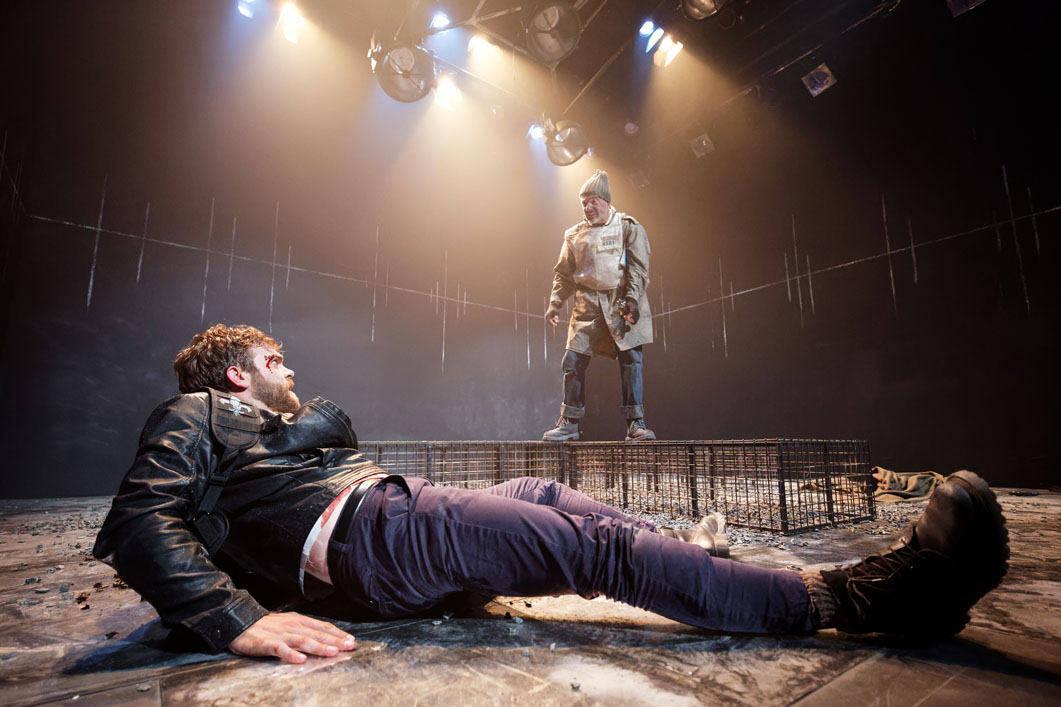 If any play can claim to be the ‘national play’ Henry V must rank among the contenders for top spot. Burnished by directors according to the mood and tenor of the time, the eponymous hero will have a character to suit. For an age scared of its own shadow for fear of causing offence, the anti-hero is the protagonist of choice. Elizabeth Freestone brings us what could pass as a post-Brexit Henry, set on the battlefields of the Somme. We find a clash of temperaments, with the French in effect saying, ‘Up your’s Rozbeef’, to English territorial pretensions.
If any play can claim to be the ‘national play’ Henry V must rank among the contenders for top spot. Burnished by directors according to the mood and tenor of the time, the eponymous hero will have a character to suit. For an age scared of its own shadow for fear of causing offence, the anti-hero is the protagonist of choice. Elizabeth Freestone brings us what could pass as a post-Brexit Henry, set on the battlefields of the Somme. We find a clash of temperaments, with the French in effect saying, ‘Up your’s Rozbeef’, to English territorial pretensions.
We meet the king (Ben Hall) already backsliding on his promise (at the end of Henry IV Pt.2 ) to face up to his responsibilities, and recovering from an overindulgence at Pistol’s wedding party. The change from party animal to national leader is thus made more abrupt. The material is simply not there in the play to show a character transformation (which Shakespeare has addressed in the previous play) so it is left to the Dauphin’s insulting tennis balls to fire him up into kingly mode. The war then appears to be the outcome of an angry reaction by a petulant king. Our Henry is a reluctant leader, a man of the people, primum inter pares, tipped into war by an irascible character. His later threats of pillage and rape at the walls of Harfleur and the butchery of the French prisoners consequently come as no shock. The king and his nobility are dressed as street fighters rather than regulars and thus claim no pretence to royalty by way of dress or demeanour. Henry’s hands, oddly evident in an ill-fitting costume too short for a monarch reluctant to use his full height, seemed in need of some instrument of war or office.
The gender-neutral casting, generally works well. Conflating Dauphin/Lewis and Katherine into one character is a stroke of creative economy, which certainly delivered the standout performance of the evening from Heledd Gwynn. Ms Gwynn served up a skinhead/punk/goth mash that was more than a match for Henry in terms of hawkishness and nationalistic fervour. My reservation is that in making Katherine akin to Joan la Pucelle (from H VI 1) she is more a she-wolf than the delicate pawn of statecraft we are wont to have. This gives a different slant to the play, depriving it of the Romantic resolultion, Amor Vincit Omnia. This, we feel, is a coupling that will never work, Katherine/Lewis having figuratively and actually more balls than Henry and apparently with a will to carry on the conflict by other means.
Ms Freestone has made no small effort to ensure the production is clear. Each line is treated as its own little treasure, the overall effect at times tending towards the pedantic. Chorus (Joanne Howarth) for all her excellent clarity gave the impression of a talk by the headmistress to an attentive sixth form. Careful to a fault rather than sweeping us up with excitement, it was a detailed exegesis;’ Now then young sirs and ladies, to pull this off we have to use our imaginations.’ Directorial creativity is evident throughout the play, from small textual tweaks, ‘This wooden…oh’, to balloons and curling tongs for swords and clever use of field telephones. Particularly moving and surprising was the English lesson being given using the dead body of Orleans.
The production benefits from a strong cast who are all at home in the language. If the direction of travel for STF is one of experimentation and innovation on these lines we can only applaud and encourage. ★★★☆☆ Graham Wyles 29th June 2018
Photo by and © Craig Fuller

